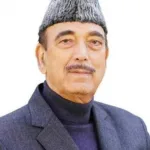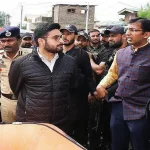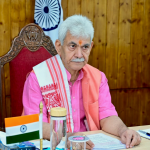Leh, Aug 12: Chief Secretary of the Union Territory of Ladakh, Pawan Kotwal, has urged citizens to safeguard the sanctity of the Indus River, calling it the region’s identity and lifeline.Speaking to the media after flagging off the Leh-to-Sangam Clean-up Drive, Dr. Kotwal said, “The Indus is our identity and lifeline. We must keep it clean, free from plastic, sewage, and industrial waste.” He noted that historically, India derived its name from the Indus River and warned that rapid population growth, coupled with the increasing use of plastic, is posing a serious threat to its purity.The Chief Secretary highlighted that incidents of people dumping non-biodegradable waste into the river have been reported, prompting the Ladakh Autonomous Hill Development Council (LAHDC) to initiate a large-scale campaign to clean both banks of the river up to Sangam. Tuesday marked the first day of the drive.“Rivers are our identity, and it is our responsibility to keep them neat and clean,” Dr. Kotwal emphasized. He added that the campaign had witnessed enthusiastic participation from locals, the Army, ITBP, police, and civil administration officials.Appealing for collective responsibility, he urged people to refrain from throwing any waste—biodegradable or otherwise—into the Indus. “We must take responsibility not to dirty the Indus River,” he said.
CS Ladakh launches ‘keep Indus sacred & clean’ campaign

Sign Up For Daily Newsletter
Be keep up! Get the latest breaking news delivered straight to your inbox.
By signing up, you agree to our Terms of Use and acknowledge the data practices in our Privacy Policy. You may unsubscribe at any time.
Leave a Comment Leave a Comment
Stay Connected
Latest News
Recent Posts
- Schools in Kashmir division to reopen on Monday: DSEK
- Azad extends greetings on Eid-e-Milad, Prays for prosperity of all
- Div Com Kashmir visits flood-affected areas in Srinagar, Budgam
- LG Manoj Sinha hails J&K Universities, Institutes for remarkable performance in NIRF 2025 Rankings
- Rana calls for enhanced inter-departmental coordination in implementation of tribal welfare schemes







